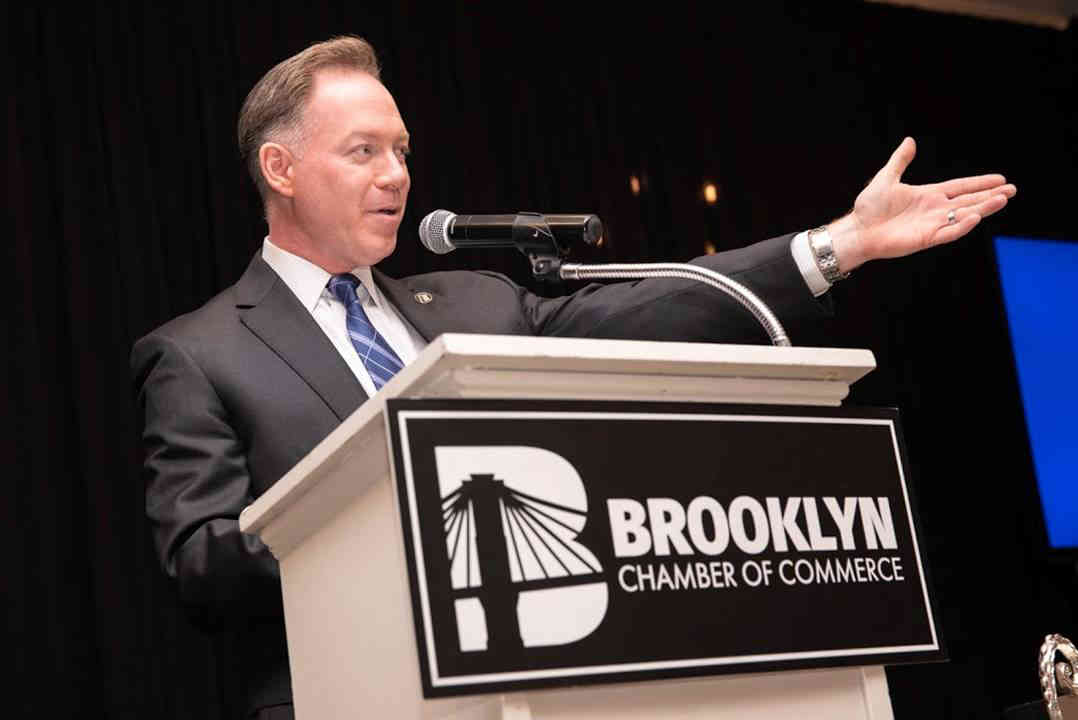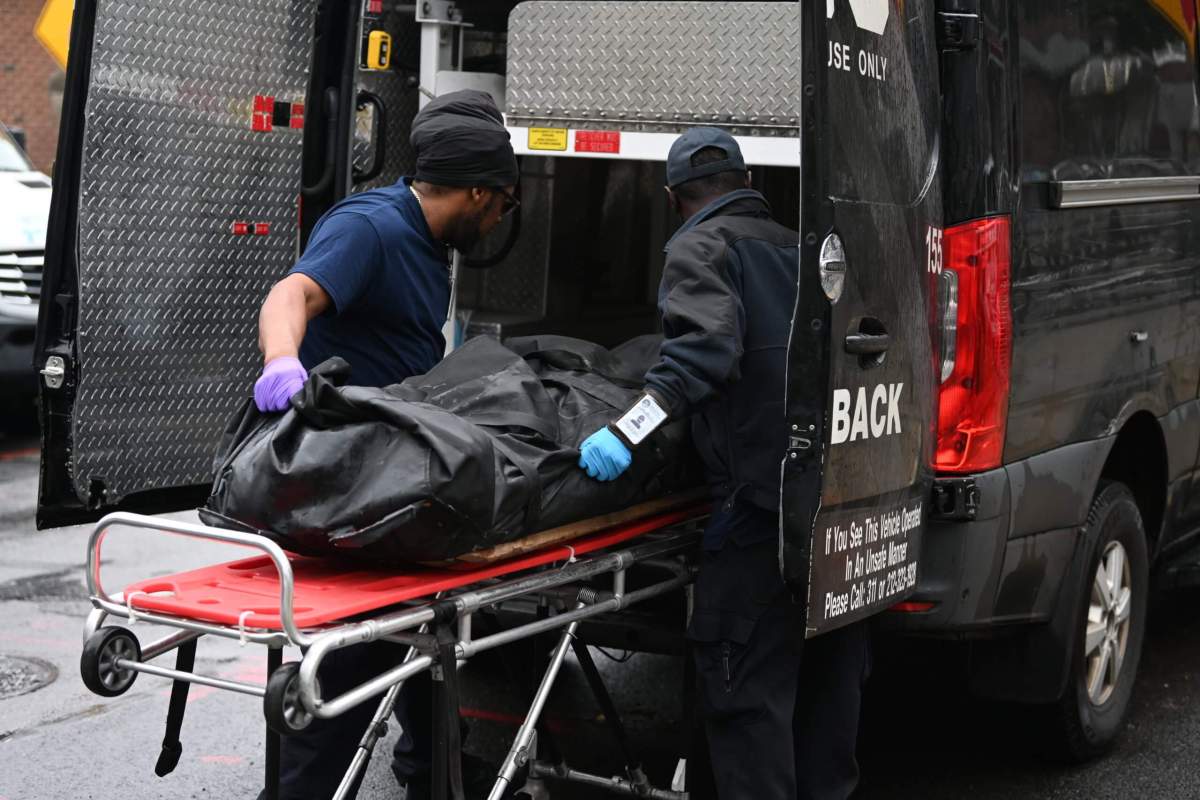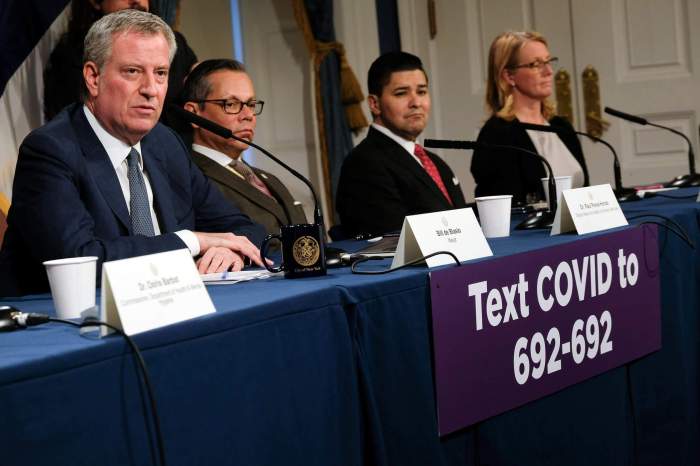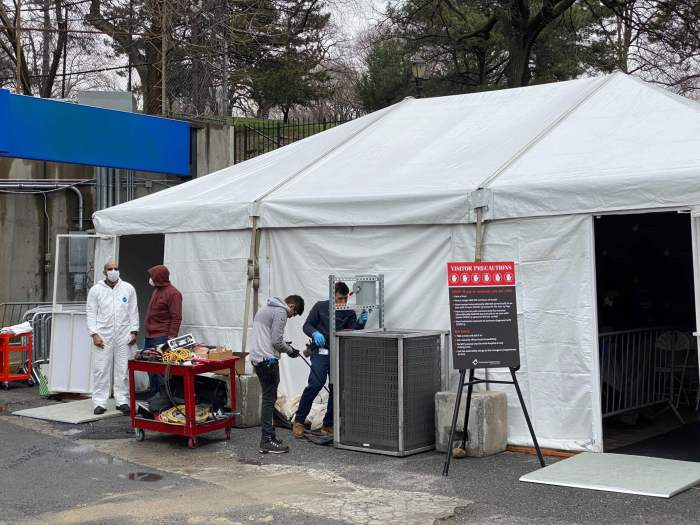As mom-and-pop shops across the borough shutter amid the coronavirus outbreak, Brooklyn’s biggest business booster is calling on federal and local governments to save small businesses from the pending perilous economic downturn.
“The situation is unprecedented,” said Randy Peers, the president of the Brooklyn Chamber of Commerce. “It started with these larger restaurants…now it’s food manufacturers that supply restaurants. Our hotels are taking a beating right now. It really is spreading now across various different industries.”
Mayor Bill de Blasio signed an executive order on March 16 forcing entertainment venues, gyms, and eat-in dining establishments to halt operations indefinitely as health officials try to mitigate the spread of the novel infection.
Those mandatory closures, as well as medical experts’ pleas to self-quarantine, have sent local small businesses into a tailspin — forcing employers to lay off staff and cut costs as the situation worsens.
The city, state, and federal governments have all put forth policies to stem the grim tides, but Peers has used his perch atop the chamber to advocate for a series of policy priorities — which he claims are both realistic and necessary to saving the “backbone of the economy.”
“We’re going to need some deep, deep involvement from the federal government, and from the city and state,” he said.
Among the legislative goals on the chamber’s wish list are:
- Suspension of the New York State sales tax for an initial period of six months
- Reduction of the New York State’s business income tax by half for 2020
- An indefinite moratorium on non-health related business violations and fines
- Repeal of New York City’s Commercial Rent Tax on small businesses
- Creation of a fund to support small businesses that undertake “deep cleanings” in response to confirmed coronavirus infections on site
- Cap on third-party delivery fees from companies like Grubhub and Seamless at 10 percent to funnel money towards local shops and away from tech companies
These objectives, aimed at giving entrepreneurs more economic and operational breathing room, would go along with the mayor’s recently unveiled plan to provide loans to struggling small businesses.
Under Mayor Bill de Blasio’s proposal, institutions with fewer than 100 employees could receive an interest-free loan of up to $75,000 — if they can prove that they’ve lost 25 percent of their revenue due to the coronavirus. Businesses with fewer than five employees are eligible for grants that cover 40% of payroll costs for two months, according to the mayor.
The federal government has also taken steps to provide cash infusions to impacted enterprises, like the Small Business Administration’s “disaster loan” program — which allows businesses of fewer than 500 employees and private non-profits to apply for low-interest loans of up to $2 million.
“These loans may be used to pay fixed debts, payroll, accounts payable and other bills that can’t be paid because of the disaster’s impact,” said Carol Wilkerson, a Small Business Administration rep. “SBA disaster loans can provide vital economic assistance to small businesses to help overcome the temporary loss of revenue they are experiencing.”
The federal agency’s loans come with long-term repayment plans of up to 30 years and an interest rate of 3.75 percent for small businesses and 2.75 percent for private non-profits, according to Wilkerson.
And while those low-interest loan plans present a “positive move” toward much needed relief, Peers called on the government to do much more to stem the businesses’ losses — like major tax-relief and deregulation.
“For some businesses that have to close completely, a loan isn’t going to help them,” said Peers.
Other business advocates agreed with the chamber president’s stark assessment, saying there needs to be a federally-funded stimulus package “on the scale or larger” than packages in years past.
“I don’t think that aid of this magnitude could come from the city,” said Alexandra Silversmith, the executive of the business advocacy group the Alliance for Coney Island. “Especially since this is a country-wide issue. It’s not just the restaurants but retail as well.”
























